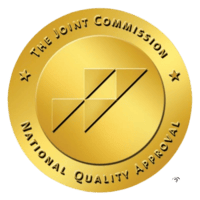Economic Benefits
The legalization of marijuana in New Jersey has ushered in a wave of economic opportunities, exemplified by the rapid growth in job creation and state revenue. Moreover, the financial implications for the state are substantial. Since legalization, tax revenue from the marijuana industry has surged, contributing millions to the state’s coffers. This influx of funds is channeled into public services, including education and infrastructure, benefiting the wider community. The New Jersey Treasury Department reported a significant uptick in tax revenue within the first year alone, highlighting the fiscal advantages of legalization.
Such economic benefits prompt a broader reflection on the potential of regulated industries to drive growth and stability. As New Jersey continues to navigate this new landscape, the tangible impact of policy changes on everyday lives must be evaluated. The economic ripple effects are profound, extending well beyond the immediate sphere of marijuana-related businesses.
Criminal Justice Reform
Many advocates for marijuana legalization in New Jersey argue that one of its most significant impacts lies in the domain of criminal justice reform. Thousands of individuals have been disproportionately affected by outdated policing practices. Legalization aims to dismantle these systemic issues. The reform has led to a notable reduction in low-level marijuana arrests, freeing up law enforcement resources to focus on more serious crimes. This shift in policing practices also alleviates the burden on the judicial system, reducing court backlogs and incarceration rates. For many communities of color, this change signifies a move towards equitable treatment and justice.
Furthermore, the expungement of past marijuana-related convictions offers a fresh start for numerous individuals, enabling them to reenter society without the stigma of a criminal record. These reforms are not just about legality but about rectifying long-standing injustices. By addressing sentencing disparities and reforming policing practices, New Jersey sets a precedent for a more just and equitable criminal justice system.
Public Health Concerns
Public health officials in New Jersey are grappling with these new circumstances, particularly about the risks of youth consumption and potential mental health impacts. Understanding these health challenges becomes vital for creating effective policies and support systems as the state navigates this new landscape.
As New Jersey starts its journey with legalized marijuana, public health officials are already grappling with the unexpected increase in emergency room visits due to cannabis-related complications. One instance involved a young man who, after consuming an edible from a licensed dispensary, experienced severe anxiety and heart palpitations and thought that he was suffering from a heart attack. This incident highlights the pressing need for rigorous dispensary regulation to guarantee product safety and accurate dosage information.
Youth Consumption Risks
One particularly concerning aspect of marijuana legalization in New Jersey is its unintended appeal to youth, who are increasingly experimenting with cannabis products despite age restrictions. More students are trying marijuana, often due to peer influence. Peer influence plays a critical role in the rising consumption rates among teens. A recent survey revealed that nearly 40% of high school students have tried marijuana, often by classmates who downplay its risks. This environment makes it challenging for school policies to be effective, as students face pressure to conform and experiment.
Moreover, schools are grappling with how to address this growing issue. Traditional disciplinary measures may not suffice, as educators like Emma advocate for more all-encompassing drug education programs. These programs aim to counteract the allure of cannabis and provide students with the tools to resist peer pressure. The risk of youth consumption underscores the need for a well-rounded approach to marijuana legalization, one that prioritizes public health and safety.
Mental Health Impact
In the wake of marijuana legalization, mental health professionals in New Jersey are reporting an uptick in cases of anxiety and depression linked to cannabis use, highlighting a complex public health challenge. While legalization aims to reduce stigma, making it easier for individuals to seek help, it also necessitates a critical conversation about therapy accessibility. Many residents, particularly those in underserved communities, struggle to find affordable mental health care. The sudden rise in mental health issues related to cannabis use underscores the urgent need for increased funding and resources to improve therapy accessibility.
Furthermore, stigma reduction remains a double-edged sword. Although it encourages individuals to seek treatment without fear of judgment, it also risks normalizing use, potentially downplaying the serious mental health risks involved. Addressing these public health concerns will require a balanced approach, combining education, accessible treatment options, and ongoing research to understand marijuana’s impact on mental health fully. To learn more about treatment options and support, visit BlueCrest Detox.
Addiction Statistics
A striking surge in marijuana use has led to a nuanced examination of addiction statistics, revealing both expected trends and surprising findings in New Jersey’s post-legalization landscape. Survey insights from recent studies indicate that while overall usage has increased, the anticipated rise in addiction rates has not followed a straightforward trajectory.
Such evidence underscores the importance of ongoing, rigorous data collection to fully understand the ramifications of legalization. As New Jersey navigates its new legal landscape, these addiction statistics serve as critical markers, guiding policymakers and healthcare providers in their efforts to balance public health with personal freedom.
Substance Abuse Trends
Emerging patterns in substance abuse reveal a fascinating shift in New Jersey’s drug landscape post-legalization, where marijuana’s newfound legal status intersects intriguingly with the usage rates of other substances. Anecdotal evidence from treatment centers suggests a subtle yet significant realignment. Counselors report a decline in the use of synthetic cannabinoids, often referred to as ‘K2’ or ‘Spice,’ as individuals gravitate towards legally available marijuana. This shift hints at broader cultural transformations as societal attitudes toward drug consumption evolve.
Interestingly, some health professionals note an unexpected rise in alcohol consumption among certain demographics. This uptick may reflect an underlying psychological pivot; where one substance becomes normalized, another might fill the void of social rebellion or stress relief. These nuanced trends underscore the complex interplay between legal status and substance preference. Moreover, cultural shifts are evident in the conversations happening around drug use. Where once there was a stark divide between ‘acceptable’ and ‘illicit’ substances, legalization blurs these lines, prompting a reevaluation of what constitutes abuse.
Medical Marijuana Vs. Recreational Use
A New Jersey-based oncologist recalls a patient whose chronic pain was alleviated through medical marijuana, underscoring its therapeutic potential. Yet, as recreational use rises, concerns about misuse and public health implications also come to the forefront. This dichotomy between medical benefits and recreational risks presents a complex landscape that New Jersey must navigate carefully.
Medical marijuana has been a game-changer in pain management for many individuals. Unlike over-the-counter medications that often come with a slew of side effects, her prescribed dose of medical marijuana has provided substantial symptom relief, allowing them to regain a quality of life they thought was lost forever. Medical marijuana’s tailored approach is particularly beneficial for individuals facing severe medical conditions. Patients dealing with cancer, multiple sclerosis, or epilepsy often find that specific strains and dosages can be optimized for their unique needs, offering a level of precision that recreational use simply doesn’t cater to.
Recreational Risks Overview
While the medical benefits of marijuana offer a beacon of hope for many patients, the landscape of recreational use presents a more complex array of risks and challenges. Over time, occasional use became a daily habit for many, affecting productivity and straining relationships. This underscores the importance of consumer education and responsible usage in the domain of recreational marijuana. Unlike medical use, which healthcare professionals often monitor, recreational users may lack the guidance needed to prevent abuse or addiction.
Without proper consumer education, individuals might underestimate the potency of the products they consume, leading to adverse effects such as impaired judgment, anxiety, and dependency. Furthermore, the normalization of recreational marijuana can blur the lines between responsible usage and abuse, especially among younger populations who might view it as harmless fun. To mitigate these risks, robust educational campaigns are essential, emphasizing the importance of moderation and awareness of potential psychological impacts.
Youth and Marijuana
Exploring the complexities of marijuana legalization, one cannot overlook the profound influence it may have on New Jersey’s youth. Parental guidance also plays a pivotal role. In communities where marijuana has been legalized, parents find themselves adapting to new circumstances. Dialogues between parents and children are essential as they anchor understanding and provide a moral compass amid changing societal norms. Education programs in schools must complement these efforts by offering factual, unbiased information to dispel myths and prevent misinformation.
Ultimately, the legalization of marijuana in New Jersey presents a dual challenge and opportunity. It requires a concerted effort to educate and guide the youth, ensuring they make informed decisions safeguarding their health and well-being.
Mental Health Impacts
As New Jersey navigates the terrain of marijuana legalization, another pressing concern surfaces the profound implications for mental health. Episodes of paranoia and depression have become more frequent amongst various recreational users of marijuana, raising questions about the potential link between marijuana use and psychological disorders. Research indicates that marijuana can exacerbate symptoms in individuals predisposed to mental health conditions, such as schizophrenia and bipolar disorder.
Moreover, the long-term impact on emotional stability is an area that requires more examination. While some users may find temporary relief from stress or anxiety, others might experience adverse effects, complicating their overall mental health landscape. As New Jersey continues to adjust to this new normal, it is important to balance the benefits of legalization with an awareness of its potential mental health ramifications.
Community Responses
Economic Opportunities While concerns around public safety persist, many residents in New Jersey are also optimistic about the economic opportunities that marijuana legalization could bring to their communities. The state government projects that marijuana legalization could create thousands of jobs, ranging from cultivation to retail positions. Moreover, the potential for increased tax revenue is alluring to many municipalities grappling with budget shortfalls.
However, it remains to be seen whether these economic benefits will fully materialize or if they will be offset by the costs associated with potential increases in drug abuse and addiction.
Future Considerations
As New Jersey continues to navigate the evolving landscape of marijuana legalization, policymakers and stakeholders must ponder the long-term societal, economic, and regulatory impacts. For instance, the state’s regulatory frameworks must adapt dynamically to address the ever-changing needs of its residents. One notable example is how Colorado’s experience with legalization has influenced New Jersey’s approach. Colorado’s early successes and missteps have provided valuable insights into the importance of robust regulatory frameworks that balance public safety with economic opportunity.
Educational initiatives are another critical component of future considerations. In Seattle, a public education campaign effectively reduced youth marijuana use by emphasizing the drug’s potential risks. New Jersey can draw on such examples to develop tailored educational initiatives that inform residents about responsible use and the potential for addiction and drug abuse. Moreover, as the state looks ahead, it must consider the implications for healthcare and law enforcement, ensuring that systems are in place to support those struggling with substance abuse while maintaining public safety.

Final Thoughts
The legalization of marijuana in New Jersey presents a multifaceted landscape, with economic benefits and criminal justice reforms juxtaposed against rising public health concerns and shifting substance abuse trends. The impact on youth and mental health especially requires vigilant monitoring. Community responses and future considerations must prioritize education and access to treatment to navigate this evolving issue. The nuanced interplay of these factors underscores the need for holistic strategies to mitigate the potential risks associated with marijuana legalization. At BlueCrest Detox, we’re dedicated to elevating you from the struggles of substance use to the peaks of recovery and resilience. Our expert team offers personalized, evidence-based treatment services tailored to support your unique journey toward healing. Reach out to us for the compassionate care you deserve on your path to wellness. Follow us on Facebook for ongoing support, insights, and inspiration on your recovery journey.
Frequently Asked Questions
What Are the Legal Age Restrictions for Purchasing Marijuana in New Jersey? In New Jersey, the legal age for purchasing marijuana is 21, with strict age verification processes in place. However, medical patients aged 18 and older can access marijuana with appropriate documentation, ensuring responsible use and oversight.
How Can Residents Find Licensed Dispensaries in Their Area? Residents can easily locate licensed dispensaries through online directories and mobile apps. These platforms offer detailed listings and user reviews, ensuring an informed and convenient experience when searching for legal marijuana retailers.
What Are the Penalties for Driving Under the Influence of Marijuana? Driving under the influence of marijuana can lead to severe legal consequences, including fines and license suspension. Field sobriety tests often determine impairment, making it essential for drivers to be aware of their legal responsibilities.
Are There Any Restrictions on Marijuana Use in Public Spaces? Public consumption of marijuana is generally prohibited, with designated smoking areas being the exception. This regulation balances individual freedoms with public health concerns, ensuring responsible use while protecting non-consumers from secondhand exposure.
How Does Marijuana Legalization Affect Workplace Drug Testing Policies? Marijuana legalization has sparked debates on employment rights and privacy concerns. Some argue that employers should respect personal choices, while others emphasize the necessity of maintaining drug-free workplaces, leading to evolving workplace drug testing policies.




